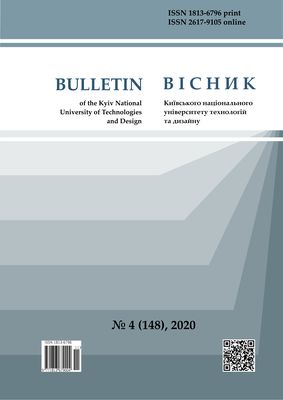APPLICATIONS OF ULTRASOUND IN MANUFACTURING PROCESS OF ELECTRIC CONDUCTIVE COATINGS BASED ON CARBON MATERIALS
DOI:
https://doi.org/10.30857/1813-6796.2020.4.12Keywords:
ultrasound, dispersion, shielding coatings, graphite, carbon black, electrical conductivity, electromagnetic radiationAbstract
Development of the basics of technology for obtaining electrically conductive coatings using ultrasonic dispersion of carbon materials.Methods. The following methods were used in the work: ultrasonic dispersion of materials, optical microscopy, four-electrode method of measuring the electrical conductivity of coatings. The shielding
effectiveness of materials was performed following ASTM D4935. The research results were processed using computer programs Microsoft office Excel and ImageJ. Results. The ultrasound treatment of carbon materials with a high specific surface area was performed. The influence of ultrasonic treatment on the efficiency of dispersion of carbon black in ethanol was established. The parameters of the process of destruction of natural graphite particles under the action of ultrasonic treatment are determined. The mechanism of structure formation into the composite material after ultrasonic treatment was proposed. The process of forming a spatial electrically conductive grid in a suspension by
dispersed carbon black was established. It was shown that the use of ultrasonic treatment in the production of electromagnetic shielding materials allows to obtain oriented particles of the carbon component in the polymer matrix of the carrier and to get samples with high surface conductivity and shielding efficiency. Scientific novelty. The influence of ultrasonic treatment of carbon materials on the fabrication process,
structure, and properties of shielding materials was established.
Practical significance. The basics of the technology of the manufacturing process of shielding materials based on carbon materials pre-dispersed using ultrasonic treatment were developed. The optimal parameters of
ultrasonic treatment of carbon materials for manufacturing shielding materials were substantiated.
Downloads
Download data is not yet available.
Downloads
Published
2021-03-10
Issue
Section
Chemical, Biological & Pharmaceutical Technologies

